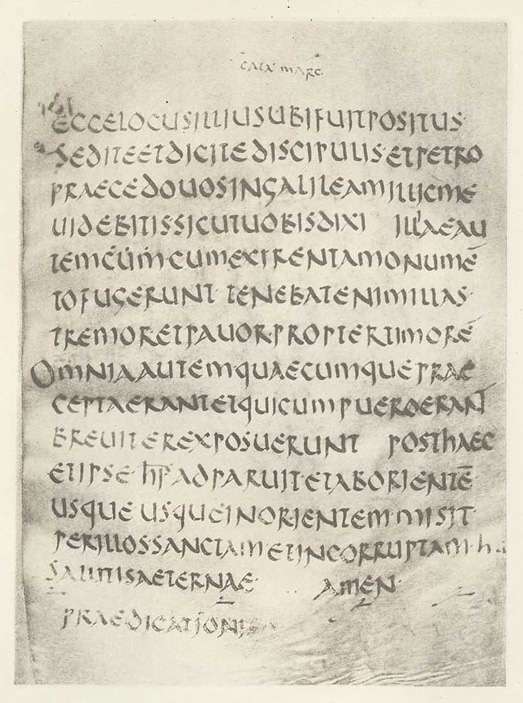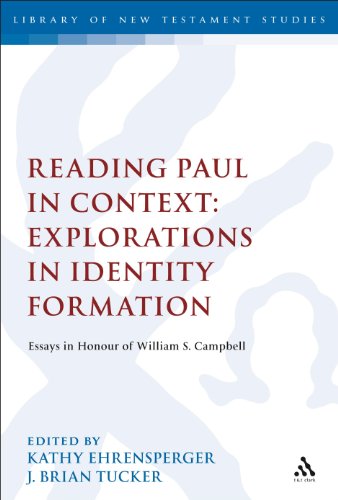I'm reading Samuel Byrskog's article, "A New Quest for the
Sitz im Leben: Social Memory, the Jesus Tradition and the Gospel of Matthew" (
New Testament Studies 52 [2006]: 319–36). Byrskog has recently fired off a series of essays looking to reframe the form-critical concept of
Sitz im Leben within the contemporary theoretical framework sustaining NT scholarship. Of course,
as I've mentioned previously, I'm not as interested in salvaging NT criticism's form-critical heritage. But inasmuch as
Sitz im Leben has degenerated into a fairly generic term that means not much more than "context," it remains flexible enough to serve contemporary needs while maintaining an apparent continuity with the research of previous generations.
At any rate, Byrskog is rightfully drawing attention to the surprising terminological disarray in the secondary literature regarding the communal dimension of memory. "There is a confusing variety of terminology. The literature uses 'family memory', local memory', 'popular memory', 'public memory', 'relational memory', 'cultural memory', etc. These expressions sometimes carry different connotations, but are also often employed synonymously" (321–22). Byrskog's right; the loose use of language here is unfortunate and, I think, masks a worrying imprecision with respect to what we're after when we use these terms.
So I'm sympathetic with what Byrskog's trying to do when he defines more precisely what he means by "social" and "collective" memory. But I'm not sure he's successful. He clarifies:
With James Fentress and Chris Wickham, I will use "social memory" as a label distinct from "collective memory". While the latter is social in that it includes those recollections of a group that are shared by all of its members, being something else than the sum total of all the individual recollections, the former is social in that it deals with the social aspects of the mental act of remembering. Social memory is thus interested in the memory of individuals in social contexts which are larger than the individual and yet related to the individual. (322)
Byrskog describes beautifully the most important insight of social memory theorists: that
every act of memory is social. But I'm not sure what his use of "collective memory"actually refers to. Byrskog equates
collective memory with "recollections of a group," but I'm not sure what a group's recollection actually
is, how it's manifested, for whom it's manifested, or whatever. Funnily enough, Byrskog himself has balked at this very idea of "collective memory": "Groups and cultures might have what we call ‘memory’, which affects the members of those contexts, but
groups and cultures do not remember and recall; individuals do” (2000:255; original emphasis). Granted that in this current context (Byrskog's
NTS article) he still focuses on the individual rememberer (notice the reference to "all of its [viz., a group's] members"). But I don't understand at what point a sufficient number of individuals within a group exhibit a particular recollection, and I don't understand what makes the memories of individuals "collective" other than, apparently, the mere fact that multiple individuals share them in common.
In a rough draft of another paper, I've questioned Byrskog's concept of "collective memory" this way:
Byrskog affirms that “groups and cultures do nurture a memory of their past” and that “memory is to some extent a social construct” (2000:255), though he does not explain what processes, social or psychological, are involved in this nurturing. This problem plagues Byrskog’s work at multiple points; another example, taken at random: “[O]ral historians of today often attempt to control the uniqueness of each eyewitness account with a sense of its representativeness and a careful method of strategic sampling. In order to do this, one needs to single out persons who are representative of a larger group, and compare their versions with each other. Groups are important, but one needs to focus on the individuals within each group, because the collective version [of the past] might be entirely different from the version of the individual” (2000:69; original emphasis). But what, precisely, is “the collective version” that an oral historian could compare and contrast with an account given by any given individual? And which individual, for that matter, is able to give an account of the past that isn’t already reflective of the history, interests, and culture of the groups to which s/he belongs?
I should clarify that I wrote these comments solely in reference to his very important monograph,
Story as History, History as Story (Mohr Siebeck, 2000). However, the same problems are operative in his 2006 article. I'm very,
very sympathetic to the interest in the social dynamics of even the most individual of processes (here, memory). And I do think that "remembering together" affects the way individuals express and employ memory. But I just can't convince myself that "collective memory" refers to "group memory" or even the aggregate of individuals' memories. Individuals and groups aren't separate (or separable) entities; my memories all by themselves are already social creations. The act of remembering with other people doesn't transform my memories into social facts; still less does it produce social facts in the melding of multiple individuals' memories. Remembering together augments and extends the social-ness of my/our memories; it does not cause that social-ness.






